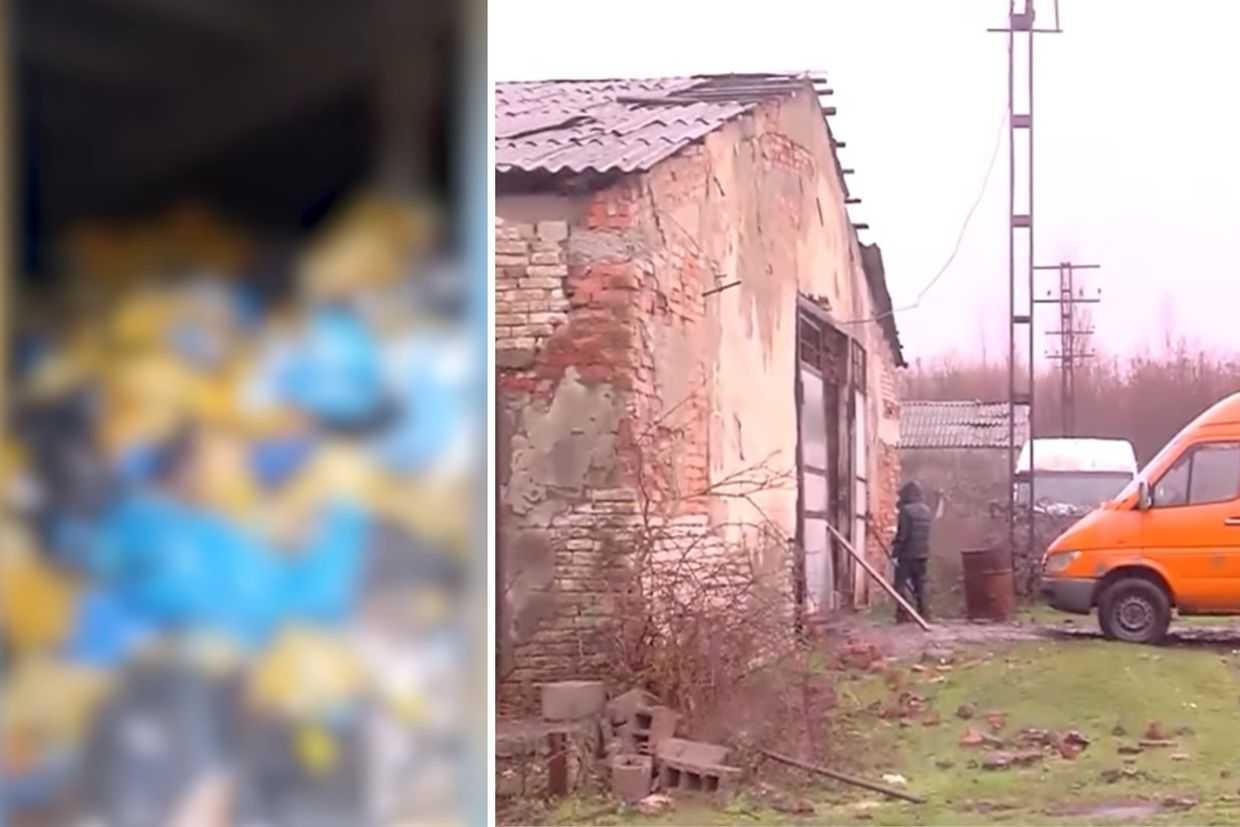Former judge says he was almost driven to suicide by pressure from Georgian Dream-linked judges
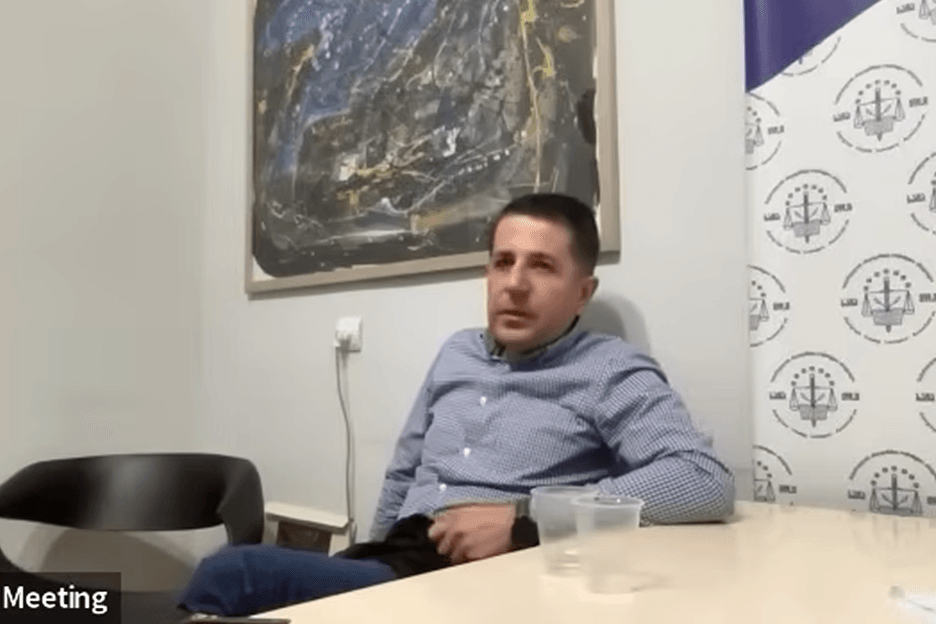
In a dramatic interview, former Georgian Supreme Court judge Besarion Alavidze spoke about constant pressure from a group of influential judges close to the state. He cited specific cases and recalled incidents where, he said, he was locked in a room, pressured to harm himself to stop a case, and even had suicidal thoughts.
A 2.5-hour interview was published Thursday by lawyer Kakha Tsikarishvili. According to him, the video was recorded in 2022 and released now with Alavidze’s consent, as the former judge is no longer in the country.
In the interview, Alavidze mainly discussed his time in the Supreme Court and accused the so-called clan of judges — a group of influential judges who, critics say, initially served the United National Movement (UNM) government and later aligned with Georgian Dream — of exerting pressure on him.
‘I often thought […] of climbing the Supreme Court’s exterior and hanging myself in my robe, so that people would see publicly that a judge had taken his own life’, Alavidze said toward the end of the interview, in a segment quickly picked up by outlets critical of the government.
‘[Then] everyone would understand the situation in the judiciary; I was under such pressure and stress’, he added.
Alavidze began his judicial career in 2009 at the Court of Appeals. In 2011 — one year before UNM left power and Georgian Dream came to government — he was elected to the Supreme Court for a 10-year term.
He left the judiciary in 2021, after his term expired.
Alavidze has previously spoken about state-orchestrated pressure, but not with such specific details.
‘I would’ve been ostracised within the judicial community’
In the first part of the interview, Alavidze discussed the early years of Georgian Dream’s rule, recalling that the ‘clan of judges’ was in the process of ‘settling’ relations with the new government.
He said that the 2014 election of Judge Levan Murusidze — described by critics as one of the leaders of the clan — as secretary of the High Council of Justice had been personally greenlit by Georgian Dream’s founder, Bidzina Ivanishvili.
‘They said, “We were on the government’s side back then [during UNM], we are now, and we will be in the future” ’, he recalled, referring to a fragment of a meeting at a Tbilisi café in 2014, which, according to Alavidze, was attended by him with Murusidze and three other judges.
According to Alavidze, the meeting concerned a court dispute over the ownership of a metallurgical plant near Tbilisi, in the city of Rustavi. On one side was the family of the late tycoon Badri Patarkatsishvili (1955-2008), who had been in the UNM opposition; on the other was Joseph Kay, Patarkatsishvili’s relative who is also known as Joseph Kakalashvili, with whom the late billionaire’s family was in conflict.
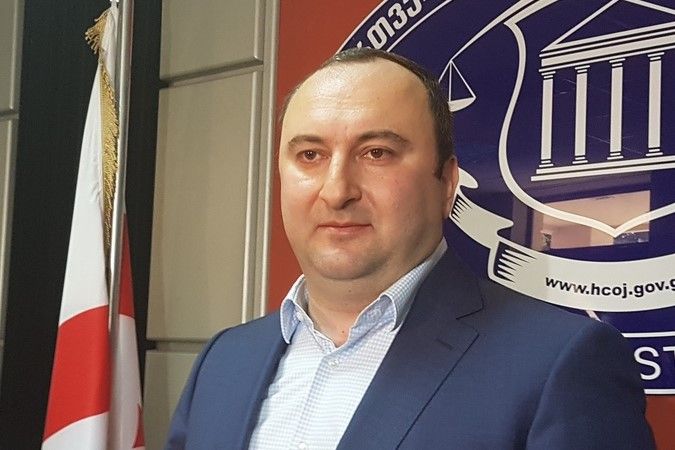
As he recounted, members of the ‘clan’ were lobbying for the Patarkatsishvili family, while the then-chair of the Supreme Court, late Konstantine Kublashvili — the brother of a UNM MP — was lobbying for the other side.
‘The fact is that neither side allowed me to make a decision the way a judge should’, he added.
Alavidze recounted pressure from the ‘clan’ to push him to resolve the dispute in the Patarkatsishvili family’s favour, describing how they viewed the case as their top priority to settle with the new government.
‘I told them […] I would make the decision I believed was right’, he said.
He said that his refusal angered the judges. One of them, Valerian Tsertsvadze — then chair of the criminal chamber of the Tbilisi Court of Appeals — tried separately to persuade him, warning that if he did not deliver the desired ruling, he would face problems.
‘[He told me] I would be ostracised within the judicial community, no one would greet me, and I would not be protected […] that I would either lose everything, or gain everything’, Alavidze recalled.
Alavidze added that he replied to Tsertsvadze that he would never take a forced decision and was prepared to kill himself instead.
‘[…] I had really been planning and preparing to commit suicide and did not go home that evening’, he said.
According to the former judge, in the end — apparently taking his threat of suicide seriously — the Rustavi plant case was reassigned to another judge.
According to Alavidze, before this happened, judges from the ‘clan’ suggested he faked a health problem to avoid scheduling the case, with Tsertsvadze even proposing that he deliberately break his arm or leg, or ‘undergo some kind of surgery’.
‘I wanted to schedule a hearing for this case, but they wouldn’t allow me to’, he added.
Rustavi 2 case, Ivanishvili, and being locked in a room
Alavidze’s remarks on the Rustavi 2 case was one of the most scandalous parts of the interview.
The 31-year-old channel became the main opposition broadcaster in Georgia after Georgian Dream came to power in 2012. This changed in 2019, when the channel was returned through the courts to its former owner, businessperson Kibar Khalvashi, who claimed that the channel had been forcibly taken from him during the UNM years.
After the change in ownership, the channel’s editorial policy gradually shifted, and it is now a prominent pro-government media outlet.
When the first two instances awarded the channel to Khalvashi and the case reached the Supreme Court, it was assigned to a three-judge panel: Alavidze, Ekaterine Gasitashvili, and Paata Katamadze.
Alavidze said that then-Supreme Court Head Nino Gvenetadze directly told the panel members that the previous two-instance rulings were correct and that they should dismiss the complaint filed by Rustavi 2’s then management to the Supreme Court.
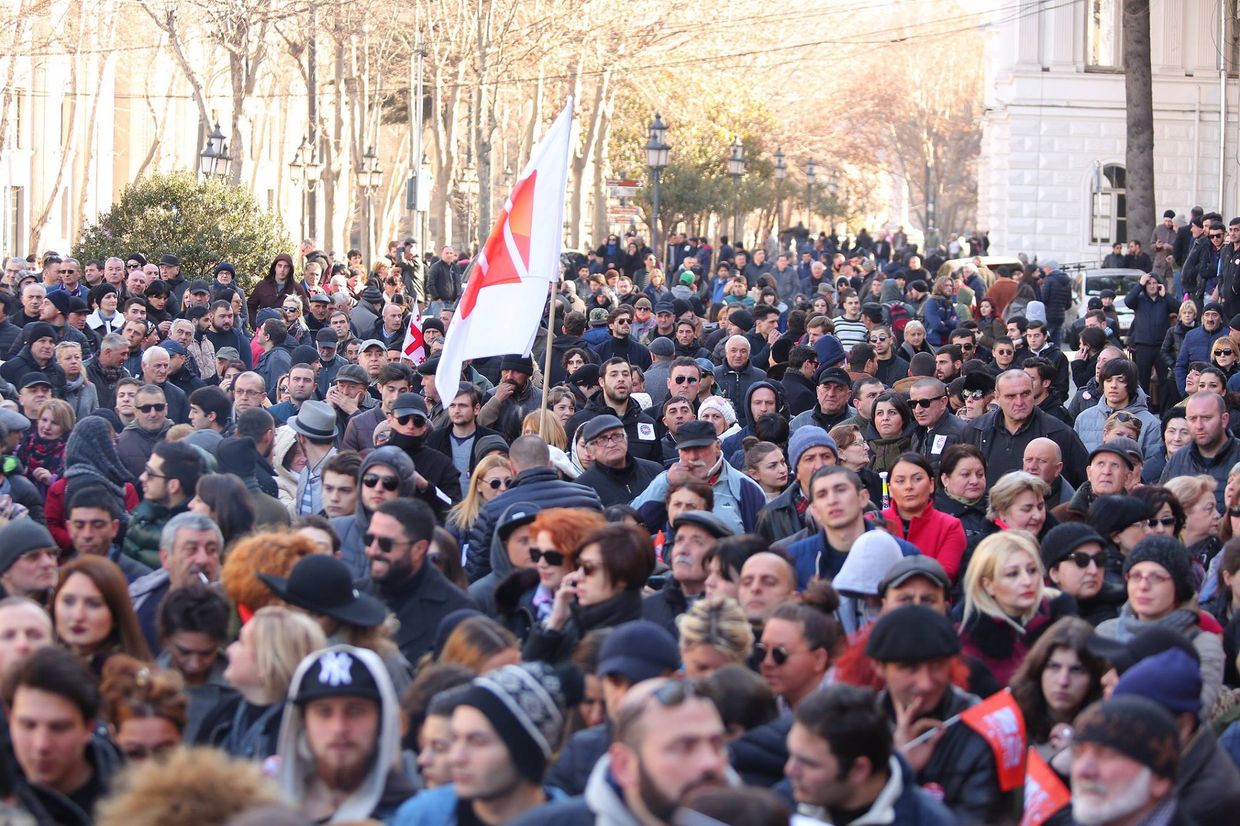
After they refused, Alavidze recalled, Gvenetadze reportedly pleaded with Gasitashvili to persuade him and Katamadze, and implied that their lives could be at risk otherwise.
According to Alavidze, Supreme Court Judge Mzia Todua, who had previously worked for Ivanishvili’s Cartu Bank for years, told the panel members that Ivanishvili personally asked her to draft part of the reasoning for the future ruling and provide it to the judges.
Alavidze also said that Gvenetadze begged him not to allow the complaint, recalling her words as:
‘I was appointed here for this[...] otherwise, who would have appointed me? If problems arise, I’ll have to leave my post because of it’.
He claimed that, as part of the pressure, Gvenetadze personally ordered Gasitashvili’s brother to be removed from an electricity distribution company Telasi.
According to Alavidze, facing resistance, the initial demand to reject the complaint was changed to a request to transfer the case to the Grand Chamber, which has nine members, where the majority would likely issue a ruling favourable to the government.
He believes that Todua and Gvenetadze themselves were under pressure as well, lobbying for the government’s position.
The most striking episode in Alavidze’s account was when, he said, he, Katamadze, and Gasitashvili were locked from the outside inside Gasitashvili’s office until late at night to coerce them into transferring the case to the Grand Chamber.
‘Paata and I said we should go out the window. We planned to then go to journalists and report that we were under pressure, locked in a room, and facing these kinds of problems’, he added.
According to Alavidze’s account, in the end the pressure worked and the case was handed over to the Grand Chamber where judges from the first collegium were also present. As he described, the authorities wanted the final ruling to be unanimous, without any dissenting opinions, likely to avoid future complications at the European Court of Human Rights (ECHR).
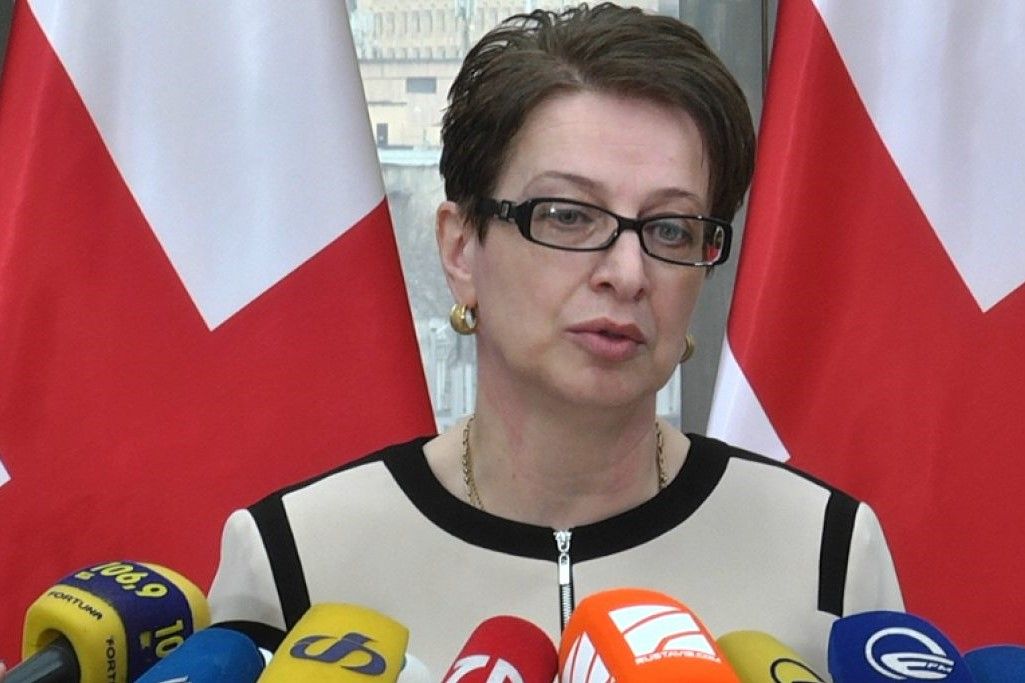
He claimed that during this process, an acquaintance of his working at the State Security Service (SSG) tried to pressure him on behalf of the leadership, offering him benefits.
‘As soon as the [decision] would be announced, they would have taken me to the airport that very day, escorted me through the VIP exit. I could have brought along along as many people as I wanted — a family member, friend, or loved one. Any amount of money I wanted would have been transferred, and I would have been sent abroad to rest’, he recounted.
Alavidze said the Grand Chamber’s final decision was 5–4 in Kibar Khalvashi’s favour. Alavidze, Gasitashvili, Katamadze, and another judge, Zurab Dzlierishvili, voted against.
The vote had already been completed when, according to the former judge, tense ‘phone calls’ began — likely because outside actors had learned that the ruling had passed by the narrowest possible margin.
Alavidze said Katamadze changed his position at the last moment, after which he and the two other dissenting judges followed suit — explaining that they did not want to leave their wavering colleague isolated.
In the end, the Rustavi 2 ruling was announced unanimously in March 2017.
As a small victory for the channel’s then-management, the ECHR temporarily suspended enforcement of the decision, but two years later concluded that the right to a fair trial had not been violated, after which the channel was handed over to Khalvashi.
‘He sought political asylum’
Since Friday morning, those targeted by Alavidze’s allegations have dismissed his claims, accusing him of defamation and of fabricating the story in exchange for seeking political asylum abroad.
Dimitri Gvritishvili, chair of the Administrative Chamber of the Tbilisi Court of Appeals, wrote on Facebook that Alavidze began ‘shamelessly defaming’ his former colleagues after ending in 2021 with what he called a ‘disgraceful’ failure in the competition to retain his judicial status.
Gvritishvili questioned why, if Alavidze’s account was true, he had denied any pressure in 2017 during the Rustavi 2 court proceedings. In the interview published Thursday, Alavidze said that at the time he had no other choice.
Murusidze also responded to Alavidze, emphasising that the video was released just two days before the 4 October municipal elections. He told IPN that Alavidze’s goal was to obtain political asylum.
‘Since he was not [reappointed as a judge], he [sought] political asylum’.
‘He was used for a dirty PR campaign against the judiciary, timed to coincide with the elections’, Murusidze said.
In a brief phone comment to the opposition-leaning TV Pirveli, Gvenetadze said she has met Ivanishvili only once in her life.
‘Now you want to disturb me on my day off!’ she told the channel.
Todua, for her part, said she had not heard Alavidze’s account.
‘No, no’, she added when a journalist mentioned Alavidze’s claims about her connection to Ivanishvili.
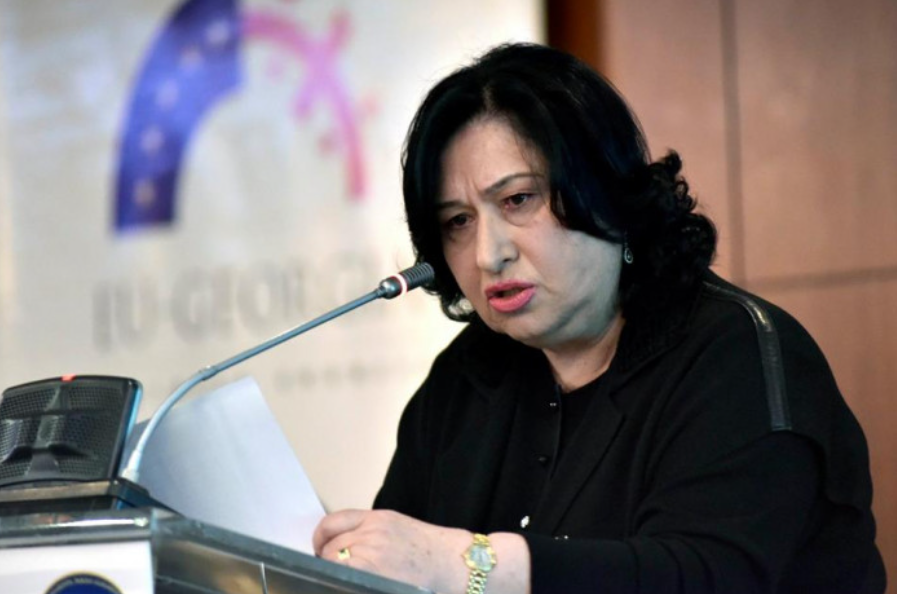
Tsikarishvili, the lawyer who released the video, said he has already forwarded it to the General Prosecutor’s Office.
Following the release of the interview, Alavidze told TV Pirveli in an additional comment that if he faces pressure, he will publish the video recording, which would confirm his account.
Critics at home and abroad have long criticised the Georgian judiciary for being under political influence.
The issue has become particularly prominent recently, as the courts have consecutively imprisoned protesters detained during ongoing demonstrations, opposition leaders, and independent media founder Mzia Amaghlobeli.








